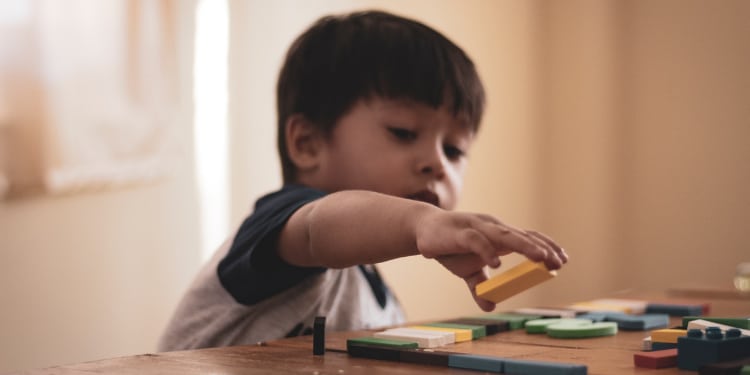











Do you have a strong-willed child who struggles to listen and follow directions? Do you feel like you have to repeat yourself over and over until you yell to get your child to do what you’ve asked? Does your child often exhibit tantrum behavior, including yelling and screaming? If so, you may be interested in Parent-Child Interaction Therapy. PCIT is a research-based therapy that treats young children (ages 2-7) who are experiencing difficulties with compliance, tantrums, and defiant behavior.

This unique therapy allows parents and caregivers to adopt play and therapy skills that they can use at home to manage and redirect their child’s behavior. Research has found that PCIT not only helps children improve their ability to comply and follow directions, but it also has an impact on the overall parent-child relationship itself, helps with parent stress levels, and can even improve a child’s attention, concentration, language skills, developmental delays, and more.[1]
PCIT is not your traditional therapy model; when most people think of therapy with children, they assume that a therapist will be in the room playing with a child and observing their responses. In PCIT, however, therapists are training parents to become experts on their own child’s behavior. PCIT sessions involve parents playing with their children in a playroom while the therapist is in the next room viewing their interactions through a one-way mirror. The therapist communicates with the parents via an earpiece and teaches them the best ways to improve their child’s behavior.
The fundamental principles of PCIT involve teaching parents about how to reinforce positive behavior in their child’s everyday life and eliminate the reinforcement of their negative actions. Most parents that come for treatment are seeking assistance in dealing with children that are aggressive, defiant, disruptive, or even destructive. They often admit that they feel as if they spend their whole day yelling at and redirecting their child’s conduct.
Therapists help parents notice how the yelling could actually be reinforcing the very behavior they are tying to stop. They then teach them the best ways to use their attention as “currency” to improve their child’s behavior. This is generally taught through play. Parents learn the skills that play therapists use to enhance their relationships with children. Once they have helped reestablish a healthier parent-child connection, therapists then teach parents the most efficient way to manage continued defiant behavior using consistent and predictable discipline sequences that have been proven to be effective by research.
Researchers have found that the combination of the relationship-enhancement and discipline skills, when used collaboratively and consistently, can have a profound impact on a child’s behavior and their relationship with their parent or caregiver. In addition to this, parents report feeling more confident in managing their child’s behavior and report significantly less stress in their lives overall as a result of learning these tools to use in everyday life.[2]
Since PCIT is an evidence-based program, therapists must be certified, or must be in training to be certified to provide this treatment. Currently, there are two main organizations that provide lists of PCIT certified clinicians: PCIT International and UC Davis. There are many community-based mental health organizations as well as private practice clinicians that offer PCIT services. If you have a hard time find a local PCIT practitioner, you may want to consider connecting with a nearby mental health professional and asking for a referral.
References